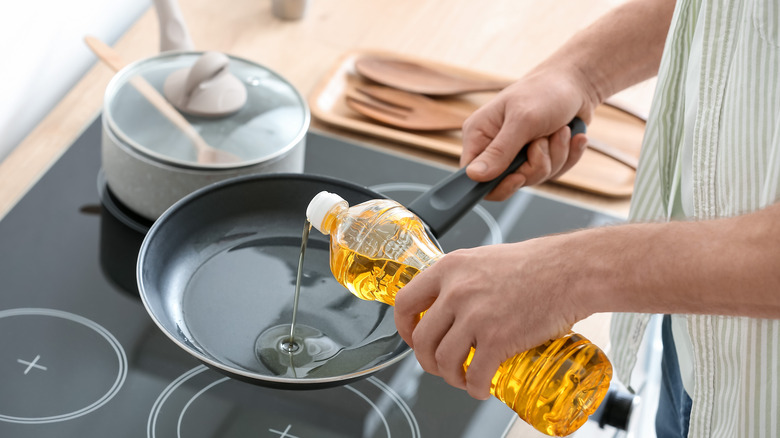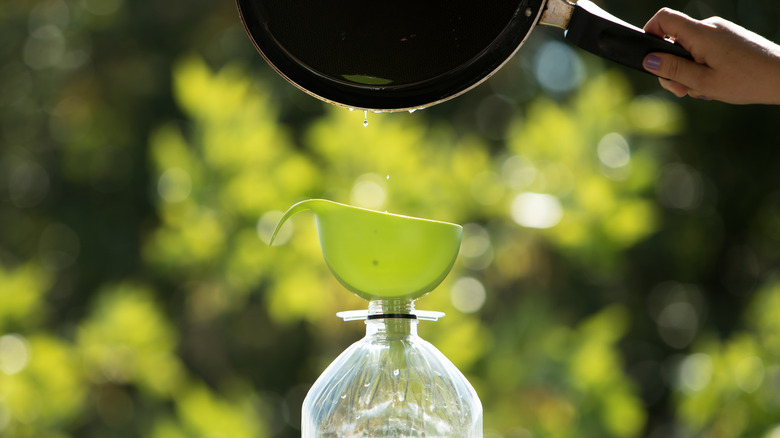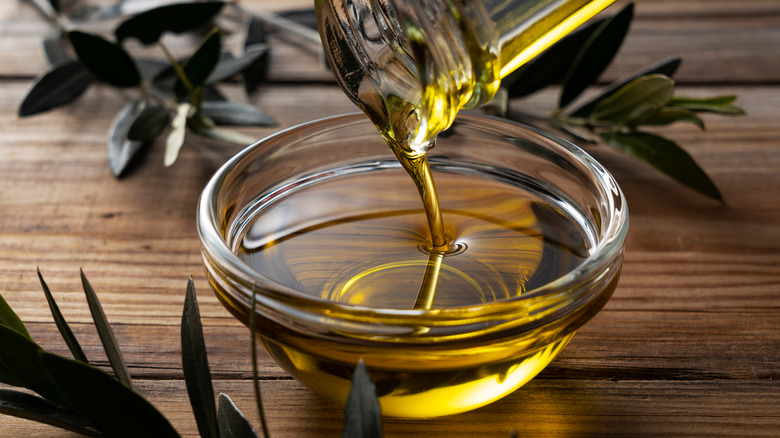The Right Way To Dispose Of Cooking Oil
When it comes to cooking with oil, preparing the food is the fun part, but getting rid of it after can be a difficult job. Many people may think it doesn't matter how you dispose of cooking oil, but it very much does. After using cooking oil, you may think that pouring it down the drain or flushing it down the toilet is completely harmless, but that's wrong as it can clog and block your pipes as well as your community sewage system.
According to Insider, carelessly disposing of your cooking oil can also invite unwanted guests like gnats and fruit flies. That's why it's so important to properly dispose of this grease type for the environment and community, but most importantly, your home. According to Act Enviro, even the least bit of oil or lard poured down the drain regularly can do harm to your home and the environment. However, if you follow the proper methods for getting rid of cooking oil, you'll have nothing to worry about.
Throw it out in a container
One of the most common mistakes people make when getting rid of oil is throwing it out without it being contained. Again, you should never pour grease down the drain, toilet, or even in your yard. According to Insider, one of the most effective and best-used methods for getting rid of cooking oil is putting it in a closed container, a Ziploc bag, or an old mason jar after letting it cool down thoroughly first.
Professional chef and culinary connoisseur Jennifer Hill Booker even recommends freezing it first before throwing it away in a garbage bin to not risk oil leaking, Insider notes. You should never store used cooking oil in a plastic bag amongst other waste because it will more than likely leak out of the bag, especially if it's still somewhat hot, Act Enviro advises. So, to make sure you're getting rid of the oil safely and effectively, let it cool completely and then throw it away in the bin.
Store it, reuse it
This is not the route everyone will take, but if you want to reuse the cooking oil, you could always consider this after cleaning it and refrigerating it for later use. According to Southern Living, it's important to strain out the remaining food particles that may have lingered in it. Remember, it's imperative to let the oil cool down before doing this. Once it has cooled, use a filter or strainer over a deep bowl and pour in the oil. Once you've removed the air particles, you can store the oil in a kitchen cabinet as long as it's kept at room temperature, but it's highly recommended to keep the cooking oil in the refrigerator, preferably in a mason jar or glass jar.
You shouldn't mix the cooking oil you used to prepare two separate meals together to avoid mixing the two flavors of oil, Act Enviro says. In addition, it's important to keep in mind that used oil can only last three to four weeks, so it's best to keep track of this expiration date.


